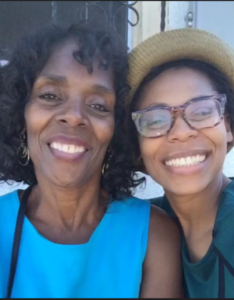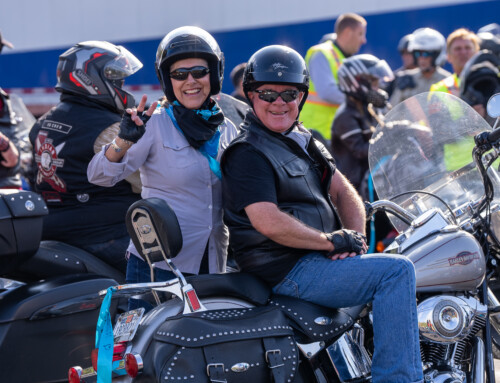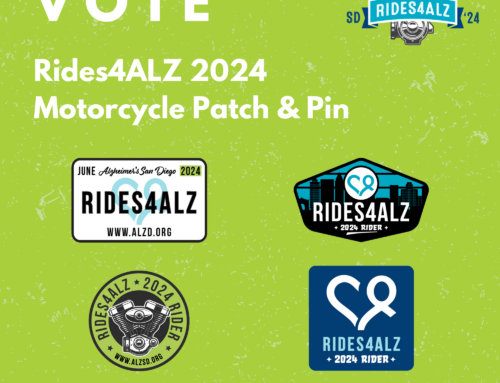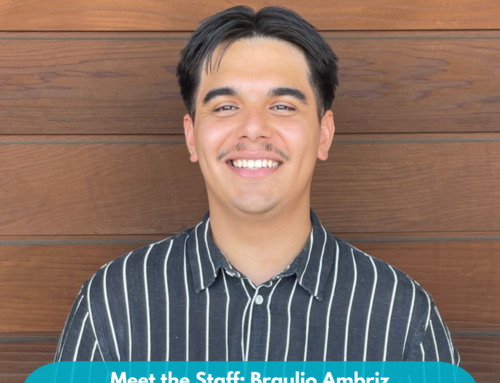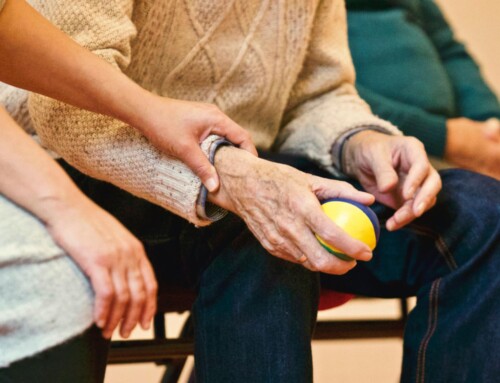Jacquelyn Joyce is here to break all the stereotypes when it comes to dementia caregiving.
At only 29 years young, she paused her TV writing career in New York City to move home to care for her mother and grandmother – who both were eventually diagnosed with dementia. After struggling with that difficult transition at first, Jacquelyn came up with a brilliant and unique support system.
You can now find her on Youtube, where she shares her story and the ways she creates daily joy as a care partner, hoping to inspire other young people in her situation.
“I didn’t identify with the term ‘caregiver’ until recently because it didn’t fit who I was, what I wanted to do,” Jacquelyn, now 33, explains. “My mom doesn’t like to paint. She’s not someone who wants to bead necklaces. What I like most about my mom is that she likes hanging out with me…that didn’t change after the diagnosis. So I find ways for us to have fun together.”
Her mother, Lynn, is only 63 – and an active 63 at that. It’s no surprise that traditional activities for people living with dementia weren’t the best fit. A glimpse at Jacquelyn’s Youtube channel is a treasure trove of ideas of how to have FUN as a dementia care partner. One standout is how Jacquelyn and her other housemates turned their home into a nightclub. You can see the joy on Lynn’s face as she danced the day away.
Jacquelyn is one of the growing number of millennials serving as dementia caregivers. According to a study by UsAgainstAlzheimer’s and the University of Southern California, about one out of six millennial caregivers is caring for someone living with dementia. Roughly 42% of millennial dementia caregivers are sole caregivers and 79% reported that accessing affordable outside help was very difficult.
Unsurprisingly, 79% of millennial dementia caregivers feel emotional distress from caregiving. About 50% of millennial dementia caregivers stated that caregiving interfered with work, and 33% reported severe interference with work such as cutting back hours, losing job benefits, or being fired.
RELATED | A Son’s Love: Navigating dementia caregiving as a millennial
It wasn’t easy for Jacquelyn, an only child, to transition into her role as a care partner. When she first moved back to Los Angeles to care for her mother, Lynn, and grandmother, Joyce, she was in a dark place.
“I was living in New York. I’m on the subway (headed to do a stand-up show), and my mom’s friend calls me saying I needed to fly home,” she explains. “I flew home the next week. I saw my mom was not as coherent as she should be, and my grandmother had no clue who I was at all. The mortgage hadn’t been paid for three months. I knew something was really wrong.”
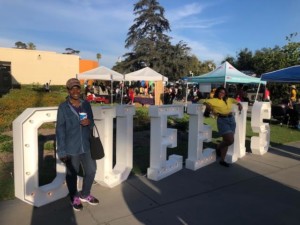 That trip home in 2016 became permanent. Eventually, Jacquelyn learned that both her mother and grandmother had been slowly poisoned by a carbon monoxide leak from an outdated furnace, which led to them developing dementia.
That trip home in 2016 became permanent. Eventually, Jacquelyn learned that both her mother and grandmother had been slowly poisoned by a carbon monoxide leak from an outdated furnace, which led to them developing dementia.
“Taking care of them was incredibly heavy. I would get migraines all the time. The worst thing was feeling so lonely,” Jacquelyn says. “Leaving friendships, leaving my dreams…all that piled on top of also realizing I had lost my grandmother and was slowly losing my mom. Things were super tight, there was no way I could hire someone to help. It all just seemed so impossible.”
Jacquelyn had to quit working in order to care for them both full time, until her grandmother passed away at the end of 2017. Heartbroken and bone tired, she knew something had to change. One day, as she was researching caregiving best practices, she came up with a life-changing idea.
“I had the moment of – you have to figure this out NOW,” she shares. “So I cleared out all the bedrooms and started an Airbnb to make sure we could pay the mortgage. I made it super cute…but it was exhausting.”
After a year, Jacquelyn turned that idea into a more permanent solution by finding long-term renters. There was some trial and error, but she’s found housemates she trusts (including a longtime friend who moved from Atlanta to help). They all are happy to serve as care partners for Lynn, and have grown to love their housemate who happens to have dementia.
“It was very intentional to build a support system. I knew how taking care of my mom and grandmother by myself affected me,” Jacquelyn explains. “It was all about finding people with the intention of creating a family. I’m still the main caregiver. But say I’m working on something and Mom’s hungry. They’ll make her some food, take her a snack. One of my housemates will tidy up her room and help wash clothes. It’s become teamwork, and it really does feel like family.”
RELATED | Caregiver Tips: Caring for Yourself
A generous friend also paid for Jacquelyn to see a therapist during this time, which led to some important realizations.
“I’d gone from taking care of two people by myself, to taking care of one person with five other people helping. It’s night and day – it’s like two different worlds,” she says. “Going to therapy helped me realize that what’s happening to me is not fair, it’s not okay, and that this shouldn’t be what my life becomes. That gave me the confidence to say, I’m going to change this. The word ‘better’ doesn’t even work. Now I can foresee a future.”
Having a support system has given Jacquelyn peace of mind…and as a bonus, she’s been able to write comedy again!
“My career has picked up a lot…for a while, finding the funny was really hard. I feel my personality slowly seeping back, I feel like my own person again,” she says.
While there are still some tough days – and Jacquelyn knows her mother will continue to decline over time – she is now better equipped to handle whatever comes her way.
Jacquelyn has some advice for fellow millennial care partners.
“I think you need a community…whatever that looks like for you. You can’t self-care yourself out of the amount of stress that comes with caring for someone 24/7. You can’t light enough candles, you can’t take enough bubble baths,” she says. “Sometimes, I think you have to put yourself first. Saying that is so much easier than practicing it. I always tried to be the best caregiver I could be. But when my focus was on making them happy, that’s when I was at my worst. Now I’m at my best.”
You can follow Jacquelyn’s caregiving journey (among many other topics) on her Youtube Channel and on her Instagram, @MomOfMyMom.
